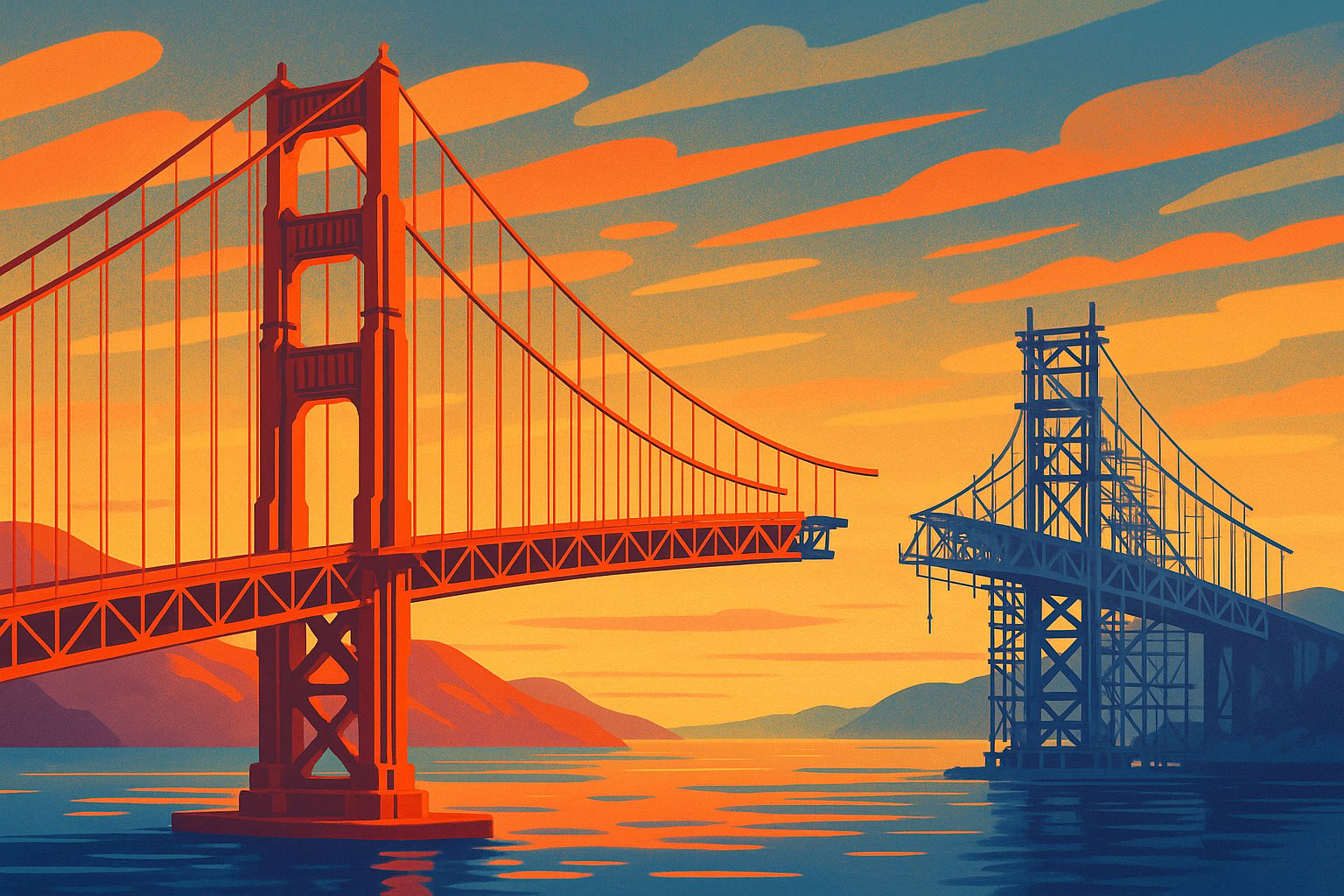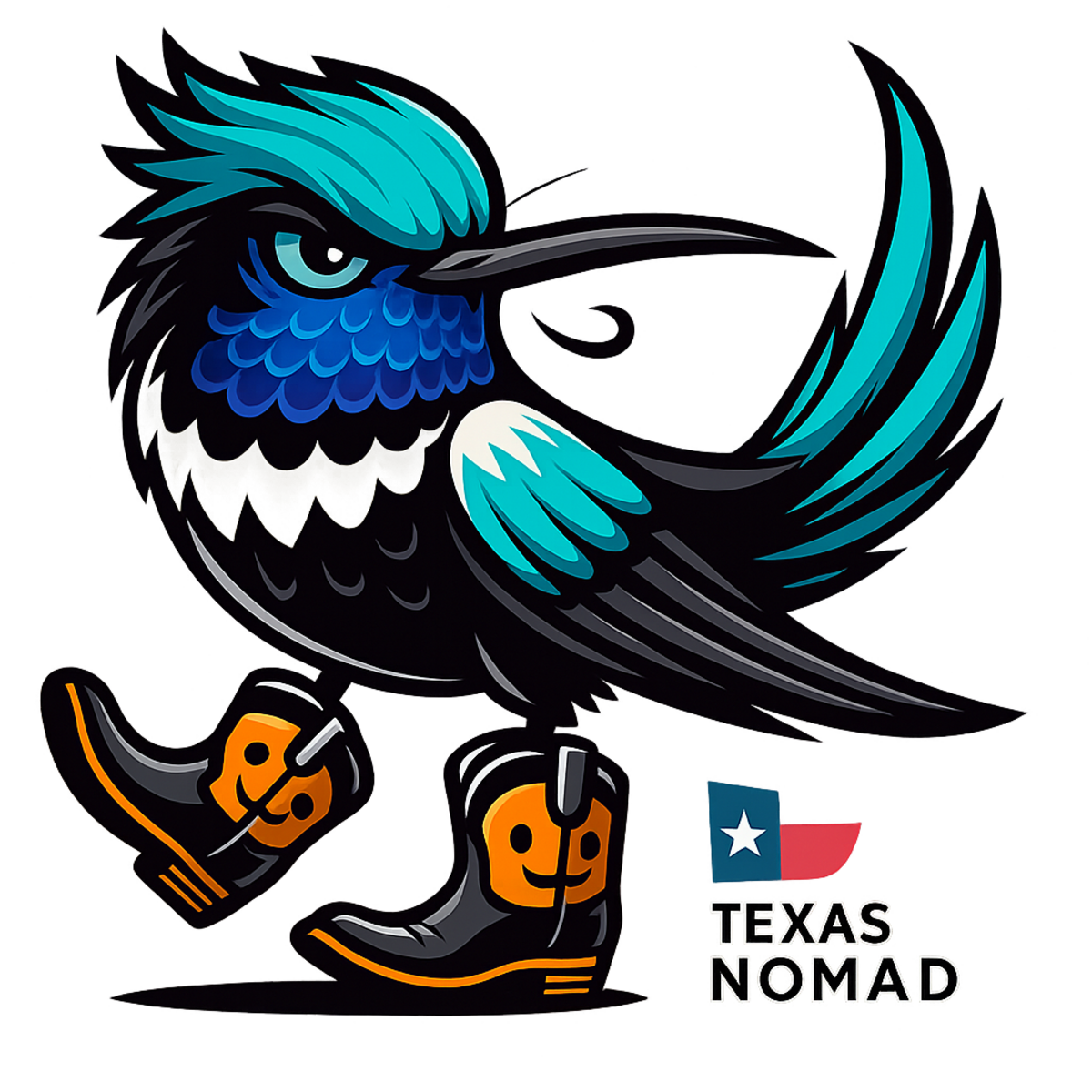What's your favorite lie your brain tells you?
📩 In Today’s Email
This is the first in a four-part series on what I'm calling The Four Thresholds of Nomadic Reinvention. Over the next month, we're going deep on Mind, Body, Void, and Self.
TL;DR - Tomorrow is a myth.
The Deep Dive - Mind as the first threshold of reinvention. Why “mañana” has been bankrupting you for years.
The Read - Kahneman’s Thinking, Fast and Slow, the book that maps the traps of your own brain.
The Stream - Chris Hemsworth’s Limitless, a Hollywood-scale experiment in mental resilience.

🤿 The Deep Dive
Reinvention of the mind doesn’t require a doctorate or a monastery.
It doesn’t require moving to Medellín for five years, crammed into a 200-square-foot room with a college fridge, a shower-toilet no bigger than an airplane stall, and a bed on the floor, boxed in by Legos, books, thoughts, and a hot plate.
Although that is what I did.
I used to say it for years: I’ll start tomorrow.
Tomorrow was always the solution. Tomorrow I’d write more, eat better, start training, build the thing I kept talking about. Tomorrow was clean, untouched, endless
But here’s the problem: tomorrow is a myth.
Ten years can vanish in stacked tomorrows.
Mañana means a lot of things, but it sure as sh*t doesn’t mean tomorrow.
The Easy Lie
The brain loves tomorrow because it feels safe. It’s just a little delay. A compromise your body makes with your mind. A backdoor deal. “Not today, but yes, definitely, tomorrow.”
That deal keeps you from discomfort right now, but it also chains you to inertia. That’s the mental loop most people never escape.
The Two Systems
Daniel Kahneman split the mind into two players.
System 1 operates automatically and quickly, with little or no effort and no sense of control. It’s the fast, intuitive voice. The one that whispered to me for years, “Tomorrow will be easier.”
System 2 allocates attention to effortful tasks. It’s slower, deliberate, conscious. It’s the voice that finally asked, “If tomorrow never comes, what happens then?”
System 1 isn’t evil. It keeps you alive in traffic and helps you tie your shoes without thinking. But it’s also the master of cheap promises. It loves the fantasy of mañana.
System 2 is heavier. It feels like dragging weight uphill. But it’s the only engine that actually builds anything real.
Reinvention begins the moment you stop letting System 1 negotiate with tomorrow and force System 2 into the room. It’s slower. It’s harder. But it’s the only way you actually begin.
The First Threshold
This is why Mind is the first threshold of reinvention. Because every other change depends on it.
You don't lose weight until you stop lying to yourself about Monday's diet. You don't write the book until you stop pretending next month is magical. You don't leave your safe job or your safe city until you admit that "someday" is just code for "never."
The Golden Gate Bridge didn't start tomorrow. Neither did the pyramids. Neither will the life you're dreaming about.
Every reinvention begins the same way: with the death of mañana. With the recognition that the only day you'll ever have to work with is this one. Not because it's motivational poster wisdom, but because it's literally true. Tomorrow doesn't exist. It never has. You've been negotiating with a ghost.
So the first threshold isn't about willpower or discipline or any of that self-help theater. It's about stopping the deal. The one where you trade today's discomfort for tomorrow's imaginary ease. That deal has been bankrupting you for years.
The mind is the first threshold because until you reclaim it from the myth of mañana, nothing else moves. Not your body. Not your location. Not your life.
What to Do With It
So, Edward, how do you actually do this?
What I did was a little drastic, a little dramatic. But I brought back some everyday takeaways.
What it does require are tiny, ruthless shifts in how you operate right now.
Start by delaying your decision, not your action. Most people do the opposite: they act impulsively and think later. Flip it. Let yourself feel uncertain. Let the fear sit there. But move anyway.
Write one ugly line instead of promising tomorrow's masterpiece.
Book the flight while you still feel the hesitation. The decision to feel ready can wait. The action cannot.
Train your brain to see "mañana" for what it is: camouflage for fear. Every time you hear yourself say "I'll start tomorrow," pause.
Ask: What am I actually afraid of?
Usually, it's not the task. It's the possibility of failing at it, or discovering you're not who you thought you were. That fear doesn't go away. But it loses power the moment you name it.
And here's the trick most people miss:
The first step doesn't have to be good. It just has to be real.
Five minutes on the thing you've been avoiding for five months. One rep. One sentence. One email. The size doesn't matter. What matters is breaking the spell of "mañana" with something concrete, something done, something that exists in the world instead of your head.
System 2 doesn't wait for motivation. You drag it into the room. You force it online. And once it's moving, it gets easier.
Not because the work gets lighter, but because momentum is its own fuel.
Adios Mañana
The mind is a trickster. It doesn’t shout “Never.” It whispers “Tomorrow.”
But tomorrow never comes. It never has. You’ve been waiting for a day that doesn’t exist.
The first threshold of reinvention is today. Right now. This moment you’re reading this sentence.
Manana is dead. What are you going to do about it?
Next week: The second threshold is called the Void. Most people spend their entire lives running from it.
Perhaps the most difficult thing a human being is called upon to face is long, concentrated thought.

Me writing the Deep Dive
🛂 Visa Watch
🇲🇩 Moldova has launched a digital nomad visa (Sept 2025), allowing remote workers to stay for up to two years with renewal options.
Take: Eastern Europe is opening its doors - cheaper bases are getting easier to secure.
🇹🇭 Thailand now allows digital nomads to stay up to 180 days per entry under a new multi-year scheme (instead of the old 60-day cap).
Take: Southeast Asia just became more viable for slowmad setups, not just visa runs.
🇸🇮 Slovenia will debut its own digital nomad visa in November 2025, granting a 12-month stay (non-renewable).
Take: Central Europe is getting crowded - another option for Schengen access.
🇵🇹 Portugal has tightened its D8 nomad visa rules: income requirements now hover around 4× the national minimum wage.
Take: Still one of the most desirable bases, but the bar just got higher.
🤓 The Read - Thinking, Fast and Slow by Daniel Kahneman
A five-foot-wide, big juicy eyeball stares at you.
The pupil dilates, retracts, expands… frantic, skittish, alive.
You’re not facing a giant about to eat you. You’re not trapped in an extreme close-up from A Clockwork Orange.
You’re in the waiting room of Nobel Prize–winning brain researcher Daniel Kahneman.
In the 1970s, Kahneman and his colleagues wired volunteers into experiments where their pupils were broadcast live on a screen. Everyone in the building could see when someone’s brain was straining. The harder the task, the wider the pupil. Mental effort, made visible.
That twitching eyeball is the right entry point into Thinking, Fast and Slow, a book about how much of your thinking is automatic, invisible, and beyond your control.
Kahneman splits the mind into two characters:
System 1: fast, intuitive, emotional. The one that whispers mañana. The easy voice that promises you’ll start tomorrow.
System 2: slow, deliberate, effortful. The one you have to drag into the room to actually begin.
System 1 is efficient, but riddled with traps. It makes you anchor on the first number you hear. It makes you overrate dramatic risks and underrate quiet ones. It pushes you into overconfidence. It tells you, you’ll write more tomorrow.
System 2 feels heavier. Slower. It asks you to pause, calculate, confront the discomfort of action now. But every reinvention depends on it.
That’s why this book matters. If you’re building a borderless life, biases multiply: currencies, contracts, languages, choices. You need a map for the mental thresholdain, a way to catch your brain before it cheats you. Kahneman provides it.
Who it’s for: anyone who wants to stop stacking tomorrows and start pulling System 2 into today.
🦜 Rio’s Corner
In Venice, there are more boats than cars. Which is charming until you realize parallel parking here means accidentally ramming a 400-year-old palace.
Where can you find the world's largest salt flat?
🍿 The Stream - Limitless with Chris Hemsworth (Disney+)
Thor gets a brain! Limitless follows Chris Hemsworth through six experiments meant to slow aging and push performance: fasting, memory training, plunging into ice water, stress drills, even dangling from skyscrapers on ropes.
What makes the show compelling isn’t the Hollywood spectacle or physical extremes. It’s the mental ones. Watching Hemsworth fight his own fear reflex in freezing water, or control panic while hanging in the void, you can see the brain’s two systems at war: System 1 screaming to run, System 2 struggling to stay calm.
That’s the real lesson of Limitless. Not that we should all dangle from cranes or fast for days, but that the human threshold is almost always mental before it’s physical.
Every body begins with a mind deciding if today is the day to start, or if mañana wins again.
It’s glossy, yes. At times, even absurd. But it lands because it mirrors the quieter fights we’re all in: the hunger of doing something difficult now instead of promising yourself you’ll get to it tomorrow.
Hollywood-scale cinema. The same battlefield you face every morning.
It’s a show about longevity, but it’s really about courage
Travel isn’t always pretty. It isn’t always comfortable. Sometimes it hurts, it even breaks your heart. But that’s okay. The journey changes you It should change you. It leaves marks on your memory, on your consciousness, on your heart, and on your body. You take something with you. Hopefully, you leave something good behind.
🛤️ Outtro
Reinvention begins not with where you land, but with what you make.
Every place is a blank page. What you write there? That’s your legacy.
If this newsletter sparked something, pass it on to a friend, a fellow explorer, or anyone rewriting their life.
This community grows through real connection. One story, one share at a time.
If you enjoyed this, share it.
Ask Birdbrain GPT (Powered by Yours Truly, Rio)
Yeah, I’m an AI now. Spooky, right? Maybe. But I still have taste.
I’ve been trained on all things nomad life: visa, gear, reinvention. You name it! Ask. me anything you’re curious about. If I don’t know today, I’ll probably know tomorrow.
That’s how intelligence works, baby.
See you next week. Don’t Escape. Design.

Edward McWilliams II


